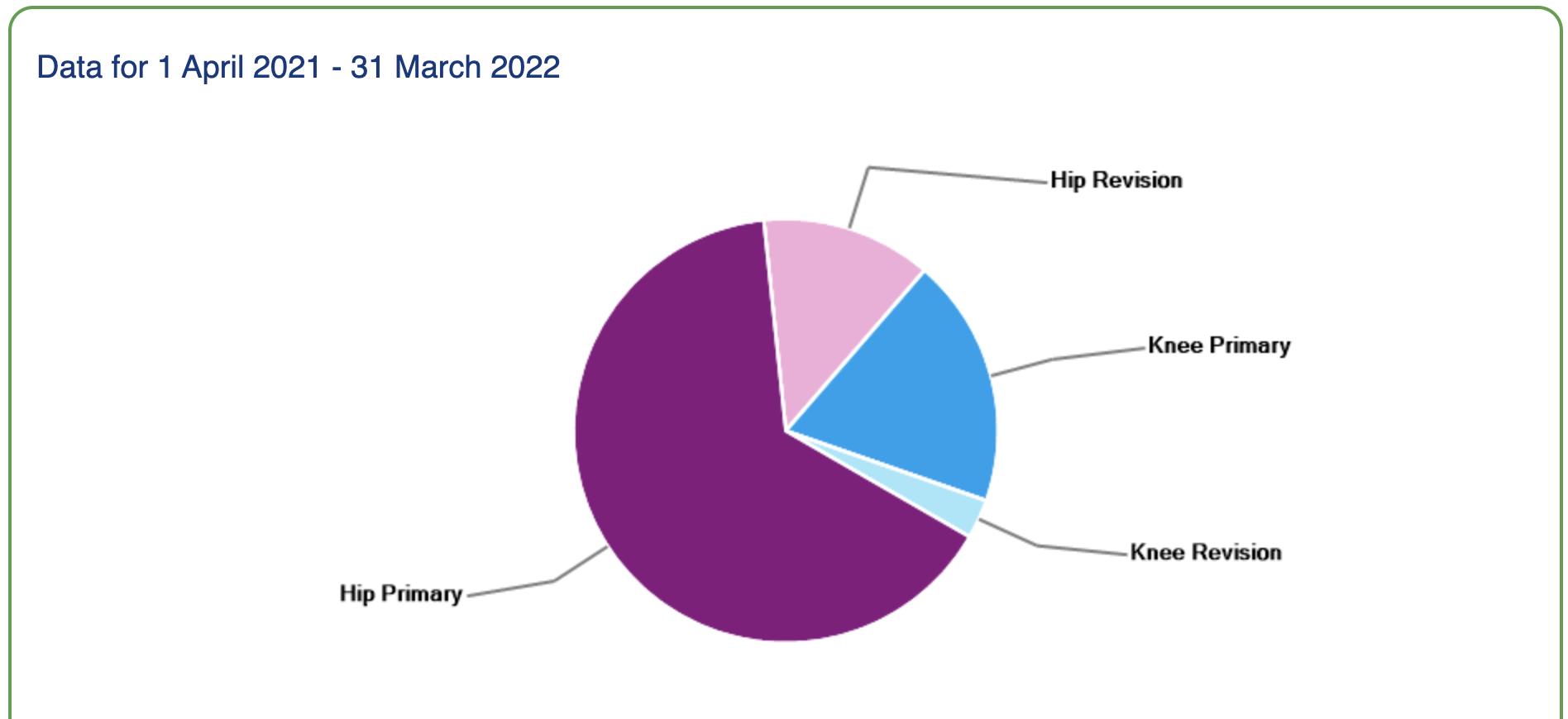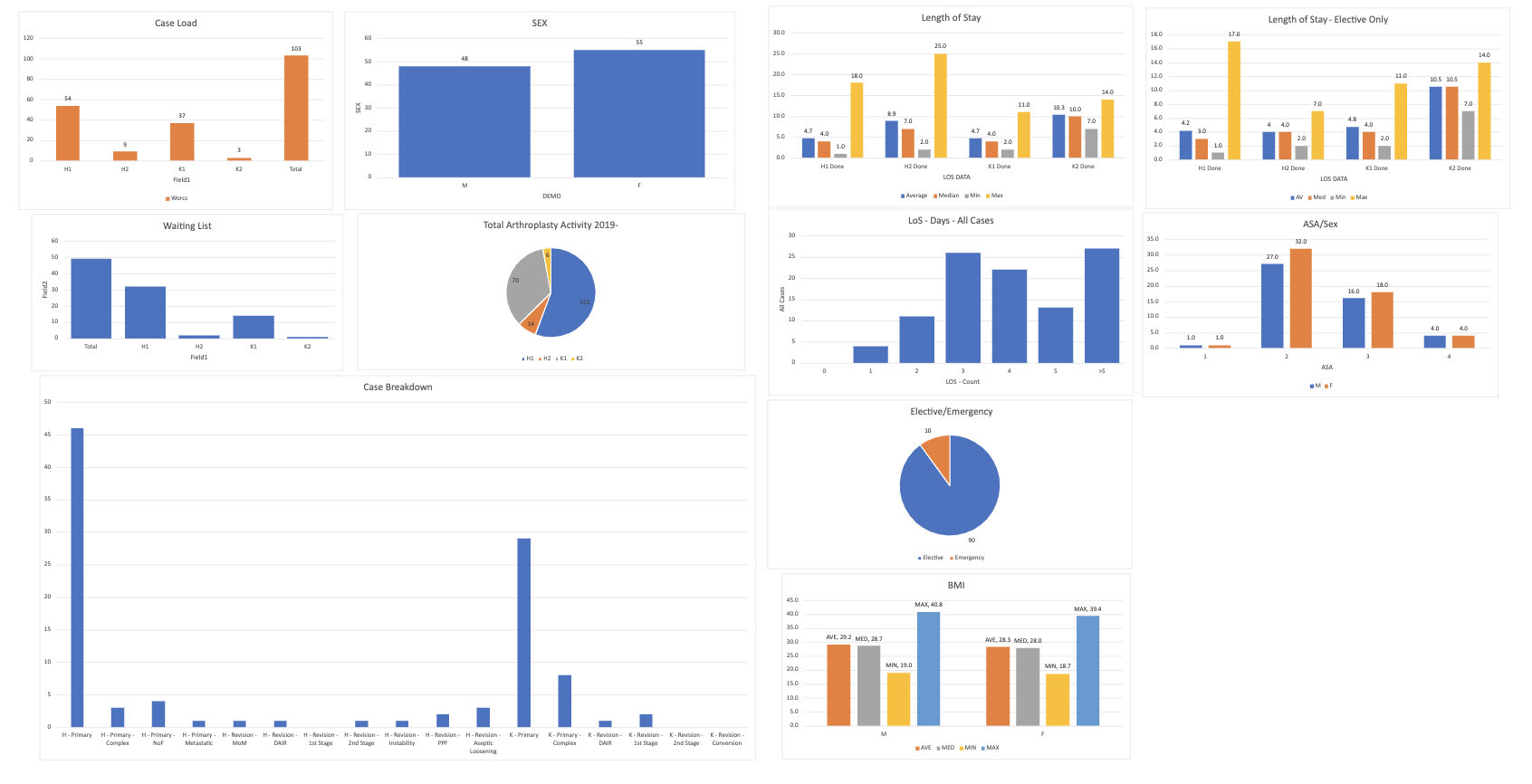“Have you done the NJR form?”
Ever since I started my career in Orthopaedics, every joint replacement I’ve been involved with has required completion of a special form. The NJR form. The NJR is the National Joint Registry, and it was set up in 2002 to collect information in England and Wales on joint replacement operations and to monitor the performance of implants, hospitals and surgeons. In the 20 years since, an annual report has been generated giving vital insight into how joint replacement has progressed, allowed changes to be made, facilitated removal of implants that haven’t performed well and overall raised standards. It has given rise to robust quality assurance and monitoring, research fellowships and output, and also guides national policy on providing the best service in the best way using the evidence collated.
As a professional community, we have made tremendous strides with our national engagement and participation in the NJR. This is not new and many other specialties have been doing it for years. Cardiothoracic surgery has closely monitored outcomes for decades and moving forward many other specialties and sub-specialties are also joining this registry movement.
On a regular basis I contribute data to National Joint Registry (NJR) and the National Hip Fracture Database (NHFD). The impact of these databases has been very positive in helping guide our practice, our strategies for improvement and maintaining standards. But the biggest downside, in my view, is that managing these databases, ensuring quality, completion, appropriate analysis and reporting takes time. So often the comprehensive and excellent reports come out a year after the events they are reporting. If there are any contentious issues then we’d have to trawl back through old notes to make corrections/updates.
A clear example is my NJR Surgeon Profile page which is run by the NJR. Even though I’ve accessed it on 4th April 2023, the most recent figures are from April 21 – March 22. Over a year out of date. It tells me about what I did in the past but doesn’t show what I’m doing in the present!

The challenge is time. Although I submit the data, I want to have real-time access to it. I want to see problems and issues as they occur so I can handle them immediately. I want to evaluate trends dynamically so I can make adjusts and improvements. When I take a step back and look at the NHS IT infrastructure I recognise that we collect a lot of data, that goes into archived storage but we don’t use as much of it as we should do.
Most hospitals have business intelligence groups. These groups will collate and manage data in order to ensure that we are meeting targets and maximising productivity in line with national guidelines and targets. Clinical groups within a hospital have junior doctors – a burnt out bunch of doctors usually doing side projects as a portfolio exercise. This emphasises the the challenges we face in the NHS and the fact we are constantly on the back foot.
But what if we not only collected the data but used it in house. Ultimately every data set sent to an external database could be utilised in a local database used in a more AGILE way?
My inherent need to know whats going on around me comes from curiosity. Surgeons are generally that way. We operate on patients and we want to know how we are making things better. Until we know that there is an improvement we will always be keeping a cautious eye on things.
I find that staying the know means I can always have my own up-to-date results and data to present to patients and colleagues. This will drive discussion and improvement.

I keep my own data, and have created a dashboard of key performance indicators that are currently helpful for me. I want to expand it but it is a lot of personal effort to do. It is worth it though, because I can rapidly keep an eye on my performance in relation to targets and expectations. So after one year at Worcester I have what I currently need at my finger tips.
It is so important that we treat data analysis and reporting as an organisational priority at every level, and not just as a financial necessity or a national project. There is nothing stopping us taking our data and making it work for us and the communities we directly serve.

